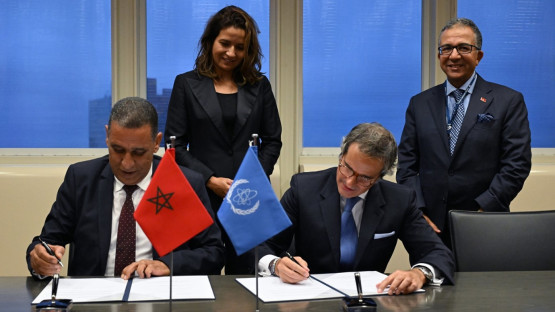
The International Atomic Energy Agency and the Moroccan national nuclear Center have agreed to step up cooperation ties on nuclear techniques for better water resource management,environmental protection and industrial applications.
The agreement is the result of a longstanding partnership between the IAEA and Morocco’s National Center for Nuclear Energy,Science,and Technology (CNESTEN),designated an IAEA Collaborating Centre since 2015,said the Vienna-based International inter-governmental agency in a press release.
This renewed cooperation will bolster Morocco’s pioneering role at the African level in harnessing nuclear technologies across various key sectors as CNESTEN has made significant strides in various fields through its collaboration with the IAEA,establishing advanced laboratories for isotope analysis,non-destructive testing,and radiometric studies.
Key achievements include conducting eight national studies on water resources assessment and management using nuclear techniques,updating isotope and chemical databases for more than 20 Moroccan basins,and participating in three coordinated research projects in the fields of water resources and agriculture.
The Moroccan center provided individual training,expertise,and diagnostic services to several African member states,organizing over 90 training courses and workshops in isotope hydrology and industrial applications. Additionally,the center published more than 25 scientific papers in these fields,significantly contributing to the global knowledge base and enhancing regional cooperation.
It is worth noting that the agreement signed at the IAEA’s 68th General Conference aims to implement two work plans,the first focuses on promoting the routine use of isotope hydrology tools at national and regional levels. The Moroccan center will provide basic and advanced training in analytical methods and the use of geochemical and isotope tools in French. Additionally,CNESTEN will offer analytical services (hydrochemistry and environmental isotopes) for IAEA technical cooperation projects in Africa and the Middle East.
The second work plan aims to support countries in mobilizing peaceful applications of nuclear science and technology in industrial settings,thereby enhancing global capabilities for the effective use of radioisotope and radiation-based techniques.
United News - unews.co.za